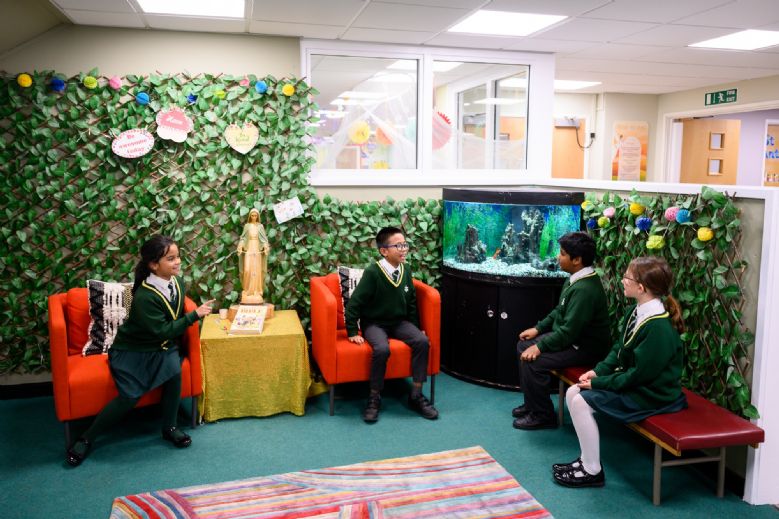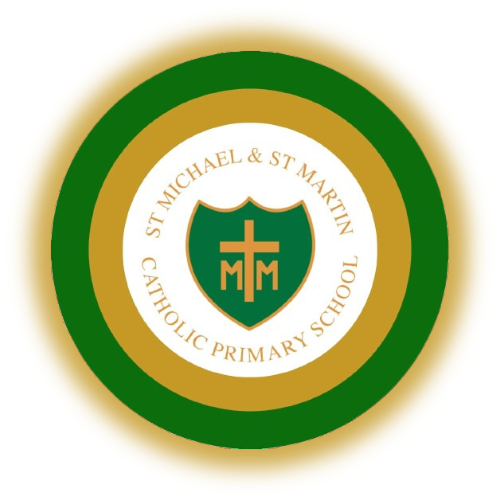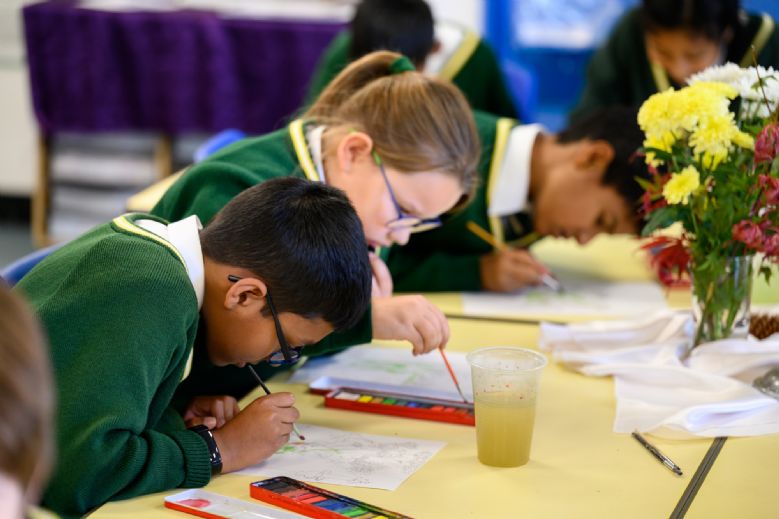Year 5

Welcome to Year 5's Class Page
The staff in Year 5 are:
Miss Oakes, Mrs Feddersen-Doyle, Mrs Fernandes and Mr Marston
Year 5 have quickly settled back into school for the Spring term. The children have been very enthusiastic about their learning, and they are growing even more mature by the day. They are becoming more familiar with the routines and expectations in terms of their homework and learning.
Religious Education
The RE topic for Spring 1 is called ‘Galilee to Jerusalem.’. This branch moves Jesus from Galilee to Jerusalem. The children will learn about the end of Jesus’ life, his crucifixion and his resurrection, the most important belief in the Christian faith.
After half-term, we will be starting our new topic, ‘Desert to garden.’ In the previous topic, we left Jesus about to enter Jerusalem, on what we would call Palm Sunday. Desert to garden walks the children through Jesus' last week, using the metaphor of gardening to image what happens. We will continue to read Luke's Gospel as our base text.
The children will continue to plan and take part in the deliverance of Collective Acts of Worship including leading the Gospel Assembly.
English
We will begin with a wordless picture book named ‘Tuesday’ by David Wiesner. We will make inferences about the story and write police incident reports and a newspaper report about the mysterious events that happened on that strange Tuesday night. We will then study an epic poem written over a thousand years ago, Beowulf. We will explore the context for this poem as it was written during the Anglo-Saxon period and look forward to writing character descriptions. For the rest of the term, we will study Tom’s Midnight Garden, learn about fables through East o’ the Sun and West o’ the Moon and study Shakespeare’s work through The Tempest. These quality texts will inspire us to write pieces across all writing genres, and we will be applying our ever-growing grammar knowledge to our written work.
Maths
In maths, we will be covering the following areas: Multiplication and Division, Fractions, Decimals and percentage, Perimeter and Area and Statistics. The children have already familiarised themselves with factors, multiples and multiplying and dividing by 10, 100 and 1000. The children will then develop their understanding by learning various methods to multiply and divide up to 4/5 digits by 2/3-digit numbers. The children will develop their understanding of fractions and work to find equivalents or simplify their answers.
We will continue to encourage the children to be proficient in their times tables and number facts, as these are vitally important for many aspects of mathematical problem-solving.
Science
The children will begin the spring term with chemistry, studying the properties of materials. They will look to investigate ‘Which material is the best insulator of heat?’ The children will then look at biology, focusing on animals including humans and life cycles. They will look to answer ‘Are there patterns linking gestation periods and lifespans?’ and ‘How are the life cycles of animals similar and how are they different?’
History
In Spring 1, the children will be learning about the ‘Anglo Saxons and Scots.’ It is very important for the children to understand the chronology of the topics and eras taught in history in the school, but also their understanding and fluency of the timeline of events within a topic. The children will research what life was like during this period of time and the links to their prior knowledge of the Viking period will be helpful.
Geography
In Spring 2, the children will learn about Rivers and Water in detail. We will look at how a river is formed and the different stages of a river. The children will develop an understanding of how a river changes the landscape through erosion and deposition. We will look at some examples of this with rivers in the UK.
Expectations
We encourage all children to demonstrate a high standard of behaviour at all times in order to create a safe, respectful and happy learning environment.
Each class has participated in the process of making a set of ‘Golden Rules.’ The children have agreed to follow the rules as they understand that this will help their learning.
Respecting each other and all members of staff is expected and reflects the ethos of our school.
The children are required to listen carefully and to develop their self-control and concentration in class and in the playground.
Working together with parents and guardians plays a big part in establishing good relationships and standards of behaviour.
We encourage our pupils to follow the school’s STRIVE values across the curriculum and in all areas of school life (Spirituality, Thinkers, Resilience, Independence, Valued, Empathy Spirituality). We will reward one pupil weekly at achievement assembly who demonstrates the school values.
Homework
In Year 5, we encourage children to take greater autonomy over their learning, and it is an expectation for children to regularly check Google Classroom for updates and announcements. Homework will complement the learning taking place in school. Children are expected to practise their spelling, number facts and read for a minimum of 20 minutes daily. Meaningful reading record entries are to be made (a minimum of 3 times weekly) and records are to be checked and signed each week by parents. These will also be checked by teachers weekly. We ask that an adult listens to your child read aloud at least once per week and signs the reading record.
Homework will cover the following areas:
-
RE
-
Spellings and grammar
-
Times tables (TTRS)
-
English (reading)
-
Maths (arithmetic & topic)
Homework not handed in on the due date will result in a demerit and recorded on our online school rewards system ‘Epraise’.
Thank you for your continued support and we look forward to the term ahead!
‘Education is the most powerful weapon which you can use to change the world’
Nelson Mandela

